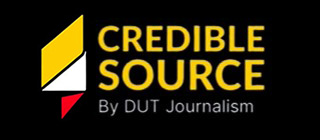By Noluthando Dlamini and Minenhle Zikhali
Following President Cyril Ramaphosa’s observation that the recent General Election results show that the people of South Africa expect their leaders to work together to address their needs, some voters are sceptical about the success of a government coalition. Some of the voters have expressed concern that things will change for the better for them.
Sifanele Jula said that although the results show a need for a coalition government, but he does not expect it to bring about any meaningful change in the country.
“If you take one rotten egg and mix it with another rotten one, you cannot make a beautiful omelette, it’s just a rotten omelette. All these parties are the same, so I don’t expect anything new,” he said.
Jula added that he does not expect this type of government to eradicate current problems such as unemployment, crime and bring about service delivery.
“Part of the problem in South Africa is that the whole political system is rotten. I don’t think that all these things will be addressed. The fact that these issues exist shows that they benefit certain people. We are in a very exploitative environment and society, so the fact that there is mass unemployment and desperation. The fact that the gap between the rich and poor is widening, I think a lot of people benefit from it,” he added.
Nosihle Mthembu said she hopes the new government will address the issues that people are currently facing.
She said: “I just hope they will put the people’s needs first, we have seen a coalition in eThekwini metro and I don’t know if it’s functioning well, coalition parties always want to show off their power.”
Mpumuzo Mathenjwa said he did not anticipate the outcomes to turn out this way, but all he can do is wait and see what the next government intends to do.
“We just have to wait and see how things unfold,” he said.
He added on to say that although he is anxious, he is optimistic because he believes that when the parties co-operate to govern, they will hold one another accountable.
“The ruling party has continuously failed to deliver on its mandate and now that it has lost to new kids on the block. It shows that the wind of change is certainly blowing in the citizens’ direction,” Mathenjwa added.
Ayanda Mncube expressed his anxiety and doubt that the coalition government will be successful at the provincial and national levels, based on the partnership’s previous record in local governments.
“Reaching an agreement between multiple parties can be time-consuming, which will slow down the decision-making process. Then there is a risk of collapse if there are disagreements, which will cause instability in the coalition government,” Mncube said.
Zakhele Ndlovu, a political science lecturer at the University of KwaZulu-Natal, said the coalition government will come with its challenges.
He compared a coalition government to a marriage of convenience, adding that the political parties have glaring differences, ideologies and priorities. He does not believe the arrangement will work.
“There have been talks about the IFP, ANC, DA and NFP trying to work together. I don’t think that it is going to work just because these political parties are so different, and their priorities are different,” Ndlovu said.


